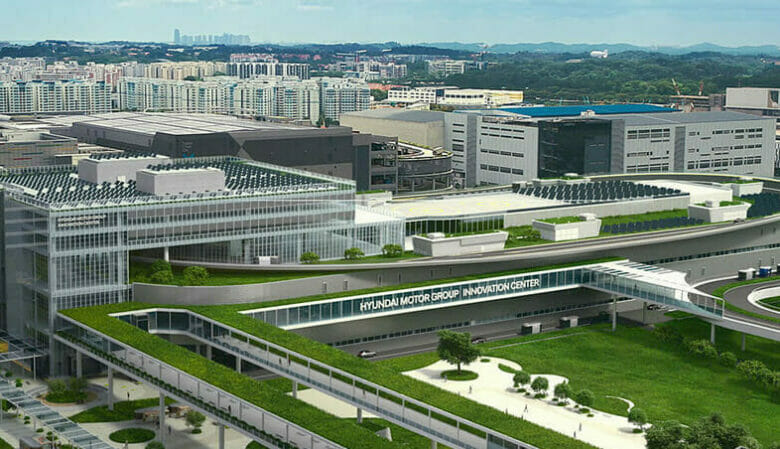テクノロジー

The Hyundai Motor Group Innovation Center is Singapore’s first vehicle assembly plant in more than 40 years
Singapore’s industrial rents rose for a 10th consecutive quarter in the first three months of 2023, with the 2.8 percent gain marking the fastest pace since the 4.4 percent growth recorded in the third quarter of 2013, according to government data.
Industrial property prices saw a milder 1.5 percent increase, slowing from 1.7 percent in the fourth quarter of 2022, the city-state’s JTC planning agency said Thursday.
Singapore warehouses posted a rental increase of 2.9 percent as occupancy eased to 90.3 percent from 91.7 percent in the preceding quarter. Shed supply remains tight amid resilient demand from third-party logistics firms, with warehouses representing only 21 percent of upcoming industrial space, said Catherine He, head of research at Colliers in Singapore.
“Nevertheless, with a manufacturing slowdown under weaker global growth, and additional supply coming onstream in 2023 and 2024, rental growth is expected to slow,” He said. “Further it has been noted that with the e-commerce slowdown as consumers transition from goods to services, some e-commerce players are also giving up warehouse space.”
Innovation Boosts Activity
Knight Frank said the rise in industrial prices and rents continues to be supported by Singapore’s innovative manufacturing activities, injecting vitality amid a deteriorating manufacturing and exports outlook.

Catherine He, head of research at Colliers in Singapore
Leonard Tay, the consultancy’s head of research for Singapore, gave the examples of this month’s startup at the Hyundai Motor Group Innovation Center in Jurong — Singapore’s first vehicle assembly plant in more than 40 years — and a glass recycling facility operated by Abraclean that repurposes glass waste into new products in Pioneer.
In the fast-growing food segment, Commonwealth Kokubu Logistics broke ground on a S$200 million ($150 million) cold-chain food logistics facility at Jalan Besut, while cell-based meat maker Esco Aster plans is setting up an 80,000 square foot (7,432 square metre) facility in Changi. Both projects are expected to be ready in 2025.
Meanwhile, the months ahead are seen as difficult for manufacturing after industrial production in March fell 4.2 percent year-on-year, representing a sixth straight month of contraction.
“The manufacturing sector is currently going through a rough patch with manufacturing GDP growth contracting 6 percent year-on-year based on advanced estimates from the Ministry of Trade and Industry,” Tay said.
Impact of Cooling Measures
Looking ahead, the cooling measures for residential properties that took effect Thursday could channel some investment funds from family offices and rich individuals to other asset classes including industrial properties, according to JLL, which termed the new policies “punitive”.
The agency said the redirected capital could lead to greater competition for the limited stock of investment-grade industrial assets, such as freehold properties on privately owned land, thereby underpinning price growth.
“Given the resilience of the sector notwithstanding the intensifying macroeconomic headwinds, we are cautiously optimistic that industrial rents could outperform 2022, potentially chalking up growth in excess of 6.9 percent in 2023,” said Tay Huey Ying, head of research and consultancy for Singapore at JLL. “On the other hand, surging interest rates and elevated macroeconomic headwinds could cap the full-year price growth to around 5-6 percent.”





